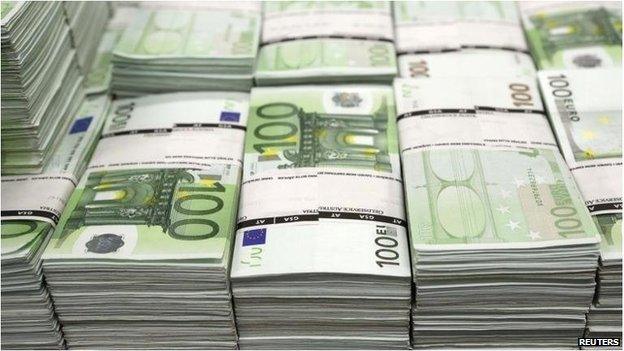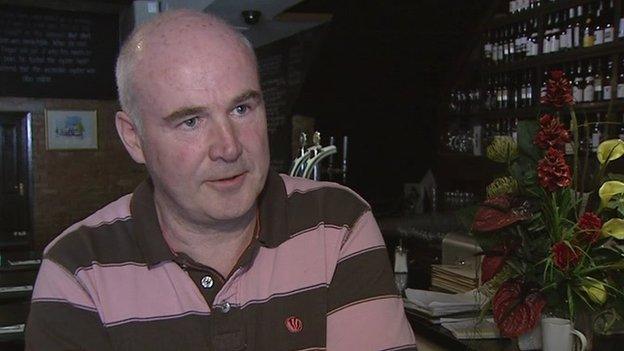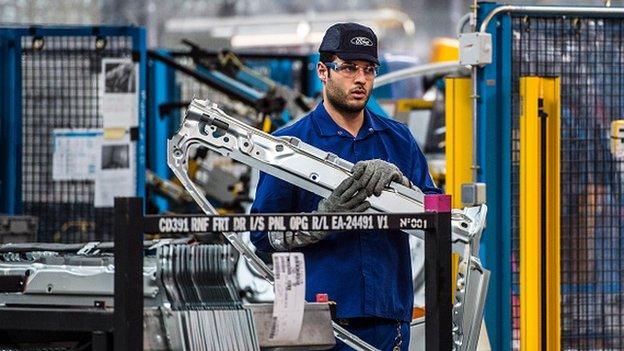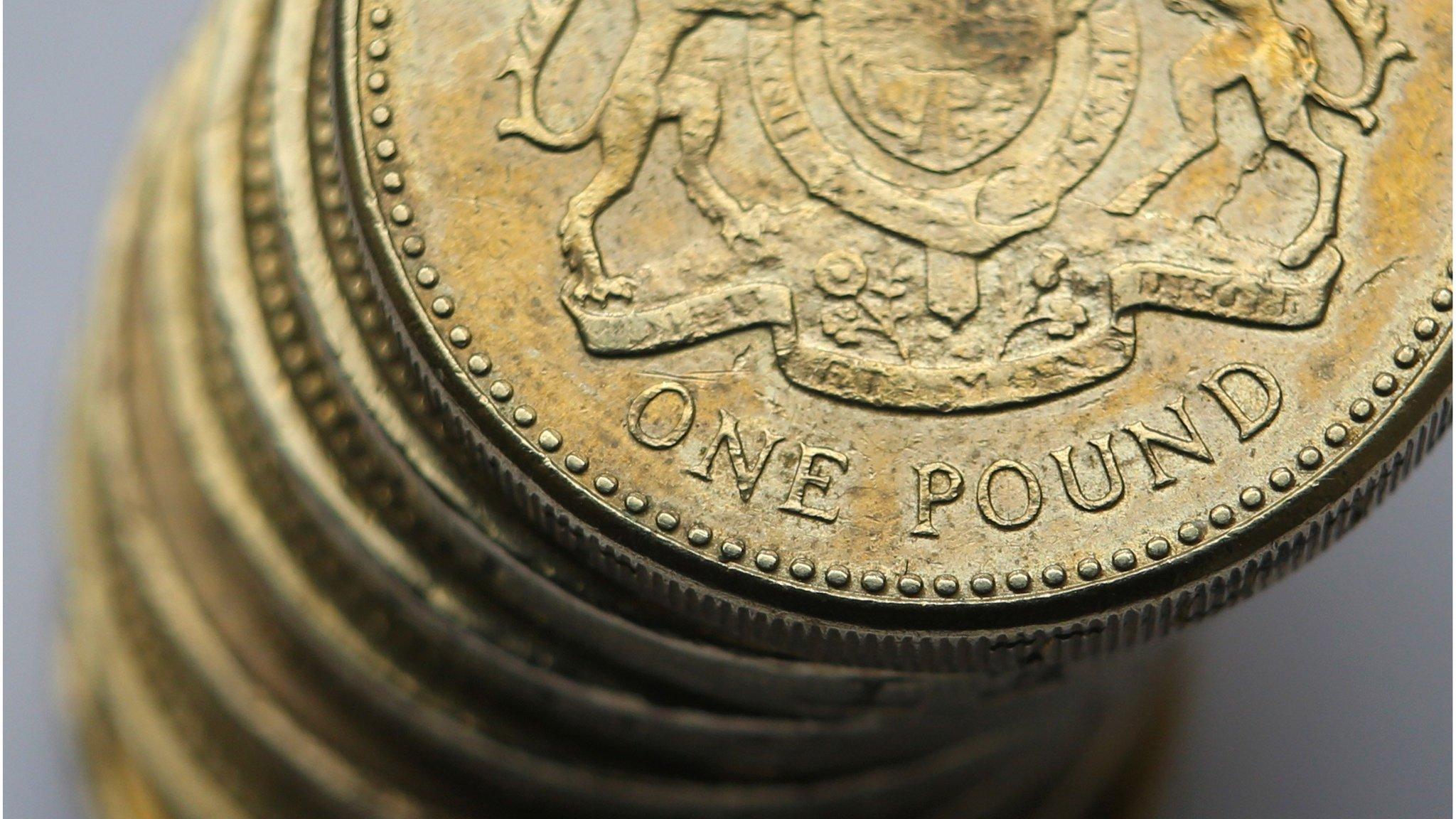Northern Ireland tourism: Worries over sterling's strength against the euro
- Published

A weak euro is causing a degree of trepidation among some in the Northern Ireland hospitality sector
Sterling's strength against the euro is not good news for Northern Ireland tourism as it tries to make headway in two of its toughest markets.
Continental Europe and the Republic of Ireland in particular have been a struggle, (based on the last annual statistics available, for 2013).
When you factor in a weak euro and there is a degree of trepidation over what the next few months may hold in an industry seen as increasingly important to the Northern Ireland economy.
"My worry is months down the line it definitely will impact," said Bob McCoubrey, a restaurant owner.
Like others in hospitality, he points out there is a lower VAT rate for tourism in the Republic of Ireland (9%) compared to Northern Ireland (20%).
Add in a weak euro and suddenly, he says, "we are going to seem to be a very expensive location".
On top of potentially fewer Eurozone visitors, more Northern Ireland people are likely to be tempted by breaks on the other side of the Irish border.
'Fighting hard'
"It is a double whammy," says Terry McCartney, who runs a hotel business in County Fermanagh and sits on the board of Tourism NI.
"We are fighting hard to maintain the level of business we have, but there is no doubt it is difficult," he said.

Bob McCoubrey says about 50% of lunchtime diners in his restaurant are from the Far East
The situation also arrives at a time when Tourism NI has had its advertising budgets cut.
It is banking on major events like the forthcoming Irish Open at Royal County Down in Newcastle to provide an influx of visitors and spending power.
Figures from Tourism NI reveal about one in five tickets sales has been to residents in the Republic of Ireland.
It is not all gloom.
In Bob McCoubrey's restaurant in Belfast, about 50% of lunchtime diners are from the Far East.
"It is not impacting on Asian or American visitors," he said.
The Northern Ireland tourism product now stretches much further afield, and does not have to over-rely on visitors nearer home.
- Published1 April 2015

- Published10 March 2015
